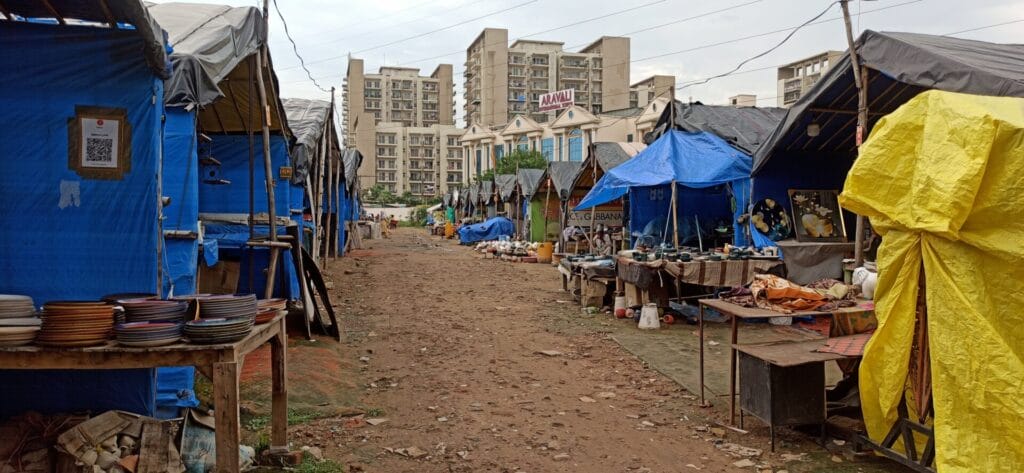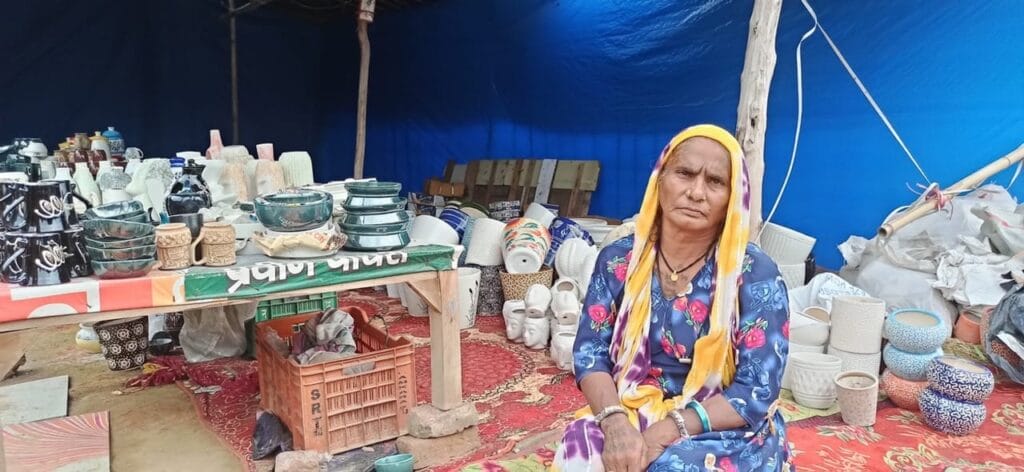After centuries of life as nomads, the Banjara have had enough. They now want to settle down, live in proper houses, and send their children to school. And they want doctors, dentists, and technology specialists in the family, not just artisans, cobblers, or make-do handymen. Speak to the nomadic tribal families living on a rented plot of land near the Aravalli International School in Sector 81 of Greater Faridabad, and their aspirations for the future ring out clearly.
The Banjara, one of India’s largest ethnic groups — with a population between 8.5 crore and 10 crore, and known across the country by at least 27 different names — are fed up, watching the good times pass them by. India is getting richer. The Banjara are getting poorer. They are more isolated than ever, more marginalised, and more distant from the dreams they have for their children.

“We have been ignored by the authorities as well as by the people, no one cares about us,” says a member of the tribe, “We have been forced to roam around and be on the move from one place to another. For now we all have come together as a community and rented a piece of land here.” However, only a few families live here now while the rest have left the settlement.
“We wake up every day without any real certainty about what tomorrow will bring,’’ says Kashiram, head of the Banjara settlement in Faridabad.
The Banjara tribes were always nomads and have a rich and illustrious history. Said to be of Afghan descent (though unconfirmed), they once played a key role in supply chains, bringing in grains and other essential goods,which they bought at low prices during their travels through the land. They then sold these in city markets, where the prices were higher. They were known to be fearless wanderers and have always been a proud people.
The origins of the current settlers in Faridabad can be traced back to Chittorgarh, Rajasthan. Their roots run deep in that region, where their ancestors had settled, but later they dispersed across different parts of India. Some settled in Gujarat, Maharashtra, Madhya Pradesh, and even spread to the southern parts of the country, like Karnataka.

This displacement wasn’t just geographical. “We also lost the continuity of our cultural practices, and over time, our lifestyle transformed into one focused on survival rather than the traditions we once held dear,” says Kashiram.
Livelihood challenges
The initial impression at the compound can be misleading. Traditional Banjara tents present a pretty picture against the urban landscape. Children play in the dusty streets. Women in their traditional colourful and richly embroidered Banjara clothes walk by while some of the men gather under the shade of trees.
But this apparent picture of ‘life-as-usual’ belies the harsh reality that the community faces. The hives of artisan creativity, on which the Banjara traditionally relied for survival, have disappeared. “We struggle to find enough customers who appreciate the craftsmanship that goes into our products,” says Kashiram.
One of the many challenges they face in the rapidly changing world is technology: People who once bought their carefully handcrafted goods — textiles, jewellery, pottery — now increasingly prefer to buy mass-produced items online.
Prerna is just one of those in this settlement who is struggling against these new market forces. Thriving e-commerce makes it difficult for small vendors like her to attract customers. The financial strain of raising a child, with limited access to medical support and education, compounds the difficulty of survival for her family.
Another tribe member, Nitin Chauhan, who has an 8-year-old daughter, is thinking of moving back to his hometown Chittorgarh, Rajasthan, because the lack of business opportunities means he cannot provide for his wife and child.
Kashiram, who came to Faridabad with members of the tribe two years ago, had hoped to carve out new markets for handmade goods, including the traditional Banjara crafts, for which they are well known. Like others in his tribe, he too thought that being close to the city would bring in more customers and income, but the reality has been quite different. “Life in the city has not been easy,’’ he says, “We’ve tried to adapt by selling more modern items, but it’s still difficult to make a decent living from that’.

The business competition is so fierce that the Banjara craftspersons have been forced to lower their prices, leaving them with very little profit. Often there are no sales, and that means no money and no food.
“We are surviving…barely. It feels like we are stuck in a cycle where no matter how hard we try, we cannot rise above our circumstances,” says Kashiram. “Life is an unending struggle against poverty to meet our basic needs. We don’t have any savings or any financial security. What we earn is barely enough to feed ourselves and keep a roof over our heads, and some days we can’t even manage that.”
Read more: Livelihoods under severe stress as climate change impacts Mumbai’s dried fish sector
Health problems are common among members of the tribe. “We can’t afford proper medical care,” he adds, “We keep hoping things will change but it appears there’s no escape.”
Missing quality education
Children aged 7-15 face significant challenges in accessing quality education. Many are forced to attend government schools where, according to the parents, the standard of education is below par and the children from the tribe are frequently neglected by school faculty.

Members of the Banjara say that this, combined with the parents’ inability to financially support their education and provide essential school supplies, has led many children to drop out. Sometimes, the families just need the children to help them with their work, in order to make ends meet. It’s heartbreaking because even when parents can see their potential, they don’t have the means to let them continue in school
Still, many among the settlers believe that education is the key to the future for their children.
“We see it as their only way out of this life. Education can give them opportunities that we never had. We don’t want them to inherit the struggles and hardships we’ve faced. Our children deserve a better future, one where they don’t have to worry about where their next meal will come from or whether they’ll have a roof over their heads at all,” says Kashiram
The road ahead is a tough one, but the one thing that the members of the tribe know is that they have to forego their traditional lifestyles and let it all remain in the past. “There’s no going back to the nomadic lifestyle. That isn’t an option anymore,” says Kashiram.